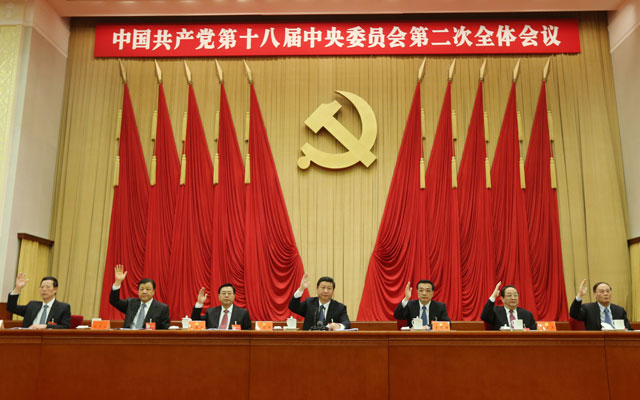Human rights advocates stressed the importance of U.S. leadership in fighting violations of liberty in China in testimony before a House Foreign Affairs subcommittee in advance of Secretary of State John Kerry’s trip to Beijing.
Chen Guangcheng, a renowned human rights advocate and former prisoner in China, told Congress the heartbreaking story of his imprisonment in China and the repercussions his alleged disobedience toward the communist Chinese government has for his family. After Chen’s escape in April 2012, officials smashed in the doors to his brother’s home and brutally beat and tortured him for over 24 hours. Witnesses said that they could hear his screams and cries.
Chinese officials also attacked Chen’s nephew, Chen Kegui. They broke into his home, beat him (almost to death), and then charged him with “intentionally inflicting injuries” when he fought back in self-defense. He remains imprisoned today.
While Chen was lucky enough to escape, many others have been left behind. Famous Chinese human rights lawyer Gao Zhiseng, for example, remains imprisoned in China. His wife, Geng He begged the U.S. to advocate for her husband’s freedom. After Gao began to defend persecuted Christians in China in 2006, he was kidnapped six times in five years by the Chinese government. In 2007, he wrote an open letter to Congress disclosing the myriad of human rights violations committed by the government. His wife recalled, “On the day they kidnapped him this time, they took him to a room, stripped him naked and brutally beat him. They also used electric batons to attack him all over his body and his genitals, so that his body shook violently and his skin turned black all over.”
Bob Fu, founder of ChinaAid, former political prisoner, and former pastor of an underground church in China, highlighted the prevalence of China’s violations of religious liberty, its blatant disregard for the life of the unborn (exemplified by its one-child policy, which has led to an estimated 330 million abortions since 1979), and the perpetuation of its gruesome labor camps. Fu believes that the key to freedom in China will be what he identifies as the “fall of the Internet Berlin Wall.” He believes that by increasing freedom of expression via the Internet, basic freedoms will have a chance at survival in Chinese culture.
Something that all of the experts agreed upon was the necessity of American leadership in fighting for human rights in China. Chen opened his testimony by submitting for the record a list with the names of Chinese officials that committed egregious offenses against him and his family. He suggested that these officials should be barred from entering the United States.
Famous human rights lawyer Jared Genser advised that Secretary Kerry should take a copy of Chen Guangcheng’s op-ed to Chinese officials and press the Chinese to address specific individual cases of abuses as well as the policies that allow or encourage such abuses.
While the Obama Administration professes to support human rights in China, its actions have done little to change the Chinese government’s behavior. The Obama White House’s refusal to meet with Chen Guangcheng and Gao Zhiseng’s wife, by Genser’s account, is consistent with the decision early in Obama’s first term not to meet the Dalai Lama. It sends the message that the Obama Administration does not care about human rights enough to invest the President’s prestige.
Kerry’s impending trip to Beijing gives the Obama Administration a shot at improving its human rights policy. Asked if the release of political prisoners was contingent upon American leadership, T. Kumar of Amnesty International told the subcommittee, “If not for U.S. leadership, Chen would not be here.… Other countries can join, but U.S. must take the leadership.” The question is: Will America take the lead, or will people like Gao Zhiseng and Chen Guangcheng’s family continue to remain trapped in China’s unrelenting grip?
